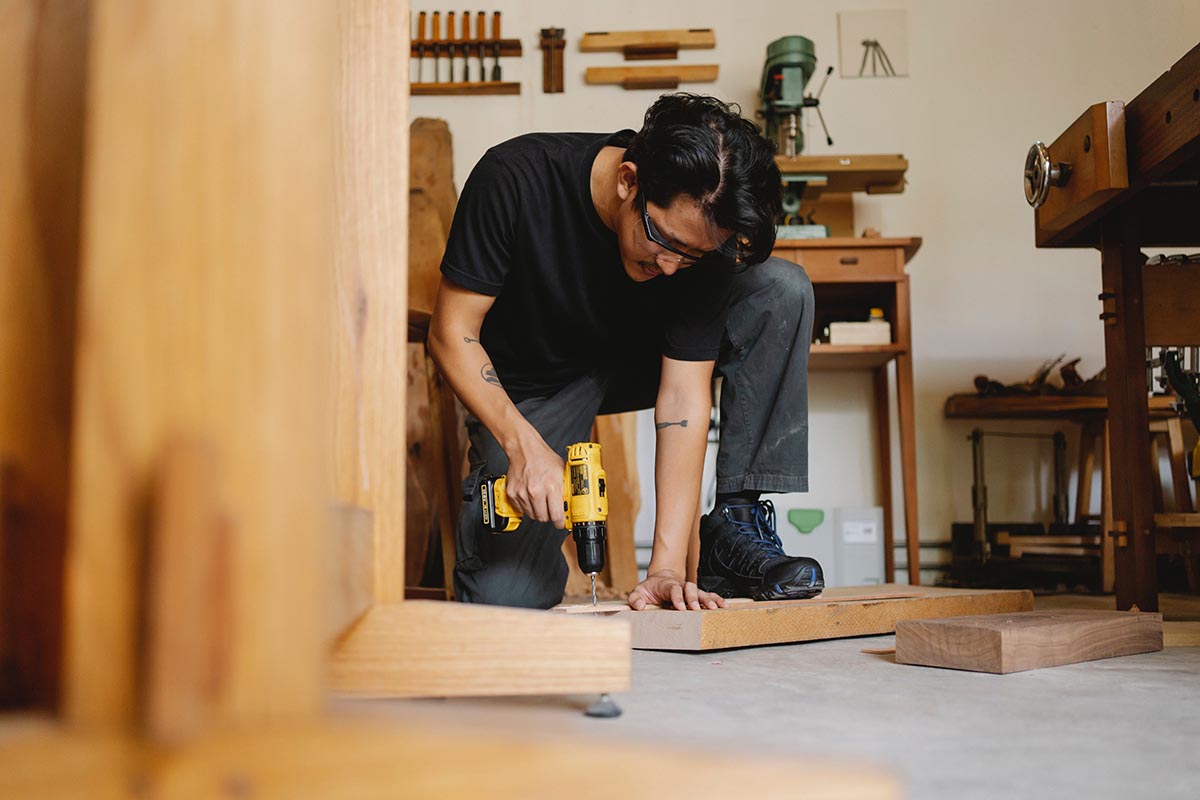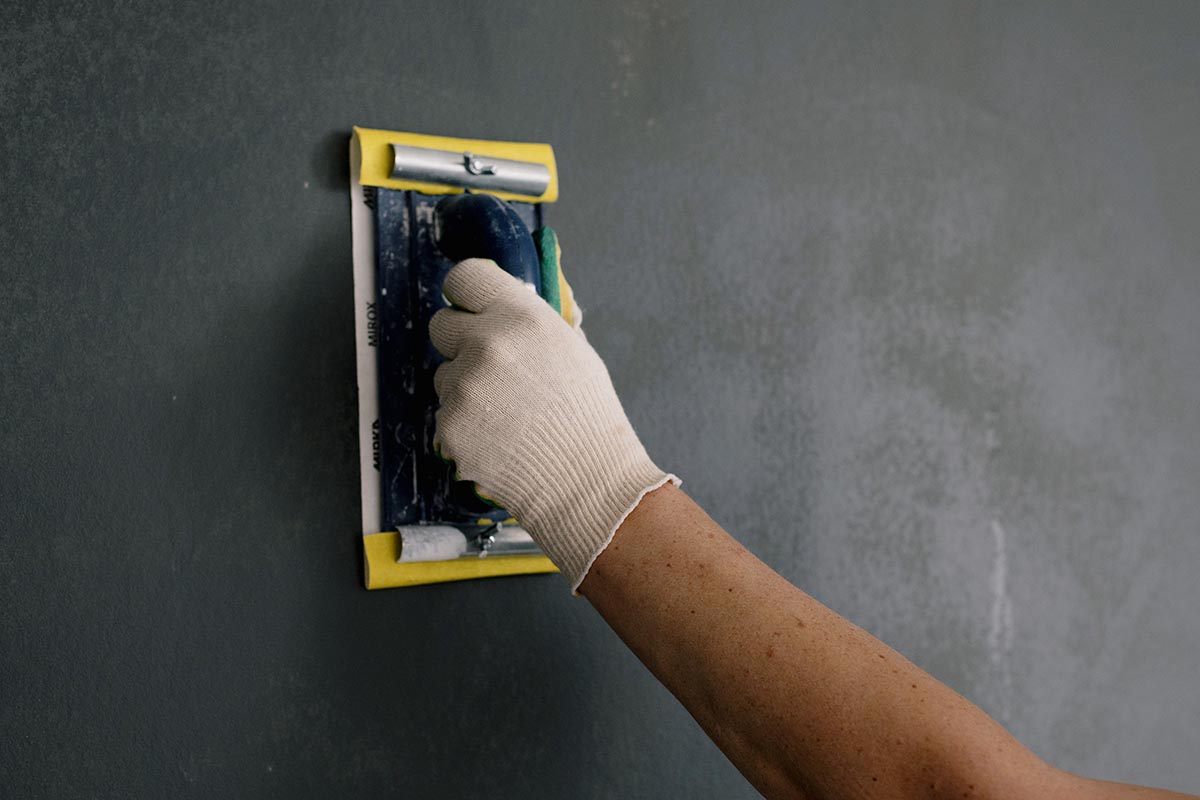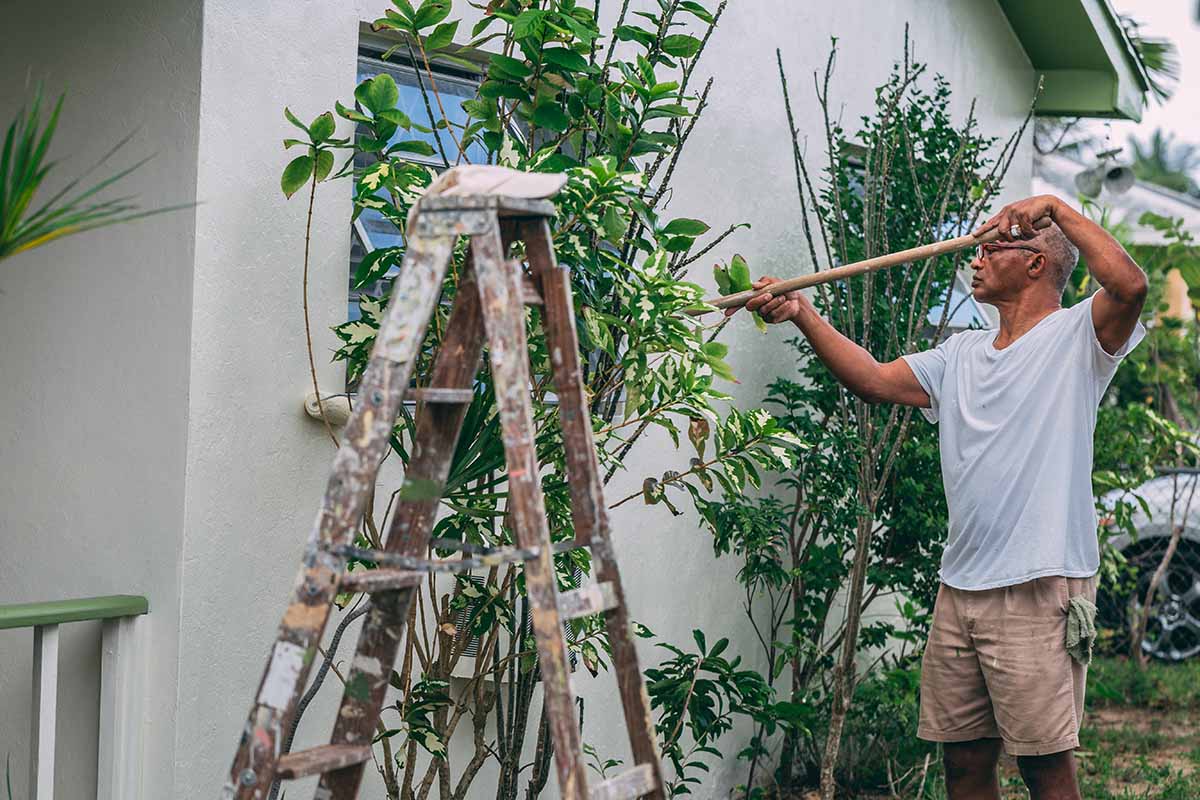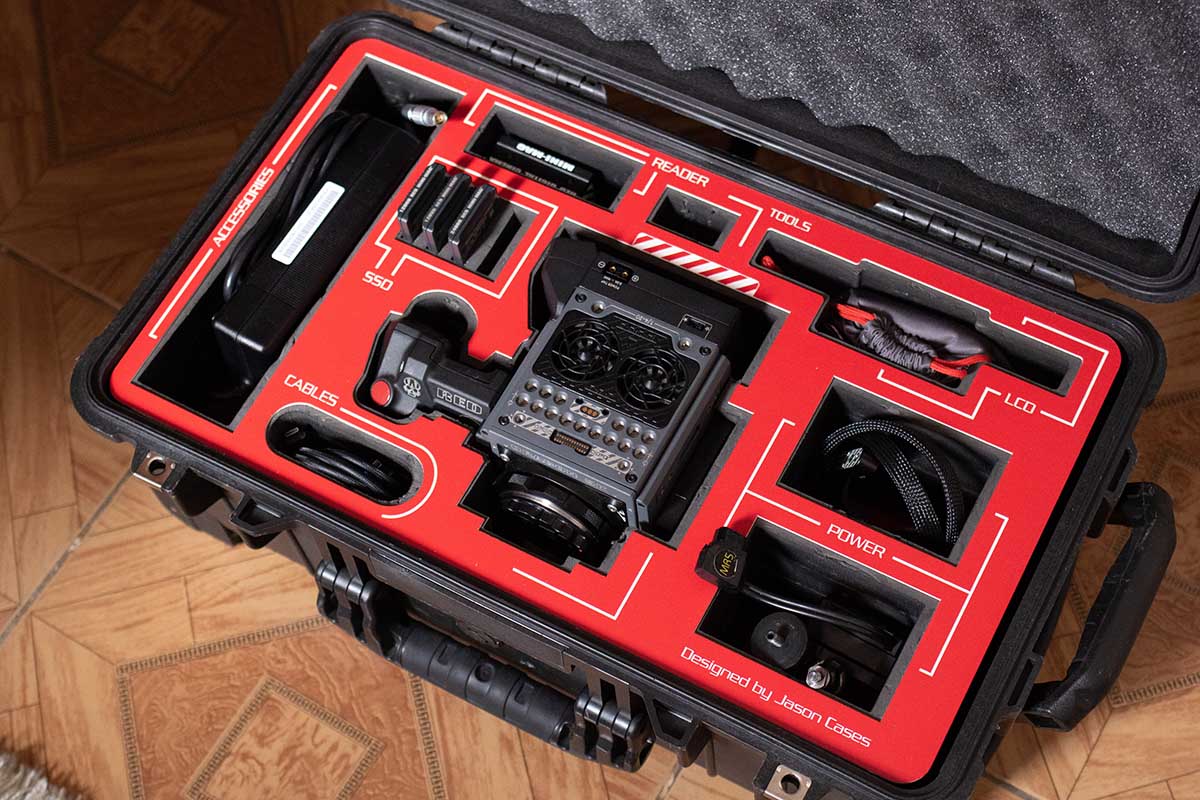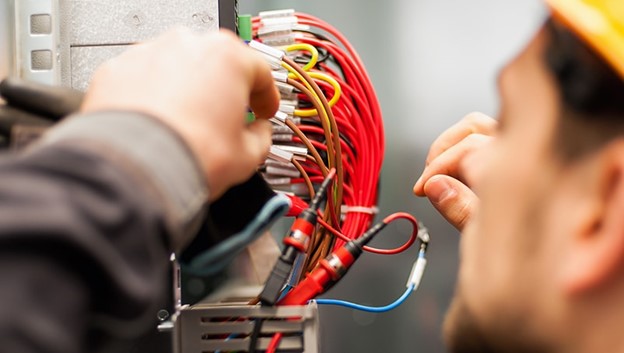The Pros & Cons Of DIY: Does It Always Save Money?
We always have this idea that DIY will save us money over hiring a professional contractor. In many cases it is true; doing it yourself does cost you less. But there are definitely some scenarios when hiring a professional is the only way to get something done properly. This article will explore some of the pros and cons of DIY and when it is worth hiring a professional.
When You Should Definitely Hire A Professional
Before we begin, let’s look at the scenarios where you should 100% hire a professional to get the job done properly. These forms of renovations need to be done by a professional primarily due to health and safety reasons. DIY jobs on any of the below will definitely not save you money as you’ll have to get a contractor to fix your work later on.
Roofing
When it comes to roofing, a professional is always best. Firstly, your roof is fundamental to the structure of your home, and the waterproofing and protection of everything beneath it. A roofing expert will be able to ensure that any damage is repaired properly.
Professional contractors will also ensure that any repairs are carried out in line with the legal requirements of your local area. They will have the necessary tools to repair the job and ultimately save you time and money over renting and operating equipment you’re not familiar with.
Plumbing
An important home renovation you need a professional for is when water is involved. Certified plumbers are an essential part of ensuring your pipes and drains are fitted and repaired correctly. Repairing a leaky pipe on your own can lead to further damage later on if the leak is not properly fixed. A professional plumber can help provide long-term solutions to damaged pipes, and also correctly identify the source of leaks to prevent something more serious from happening later on.
Electricity
Undertaking repairs on your electrics unless you’re a qualified electrician can come with its own safety risks. Fire hazards are a very real part of poorly fitted electrics, so it’s essential that you hire a qualified electrician to rewire or install new wiring in your home. In addition, you also risk electrocuting yourself or leaving wires exposed if they are fitted incorrectly, risking yourself and your family’s safety. Keep yourselves safe by hiring a professional for your electrical repairs.
Pest Control
Do you have a serious pest control problem? Hiring a pest control technician can help you safely identify and remove pests from your home. Certain DIY ways of removing pests from the home can impact the health of your children and pets, so hiring professional pest control experts can help safely and properly remove wildlife from your property. It’s also important to remember that not all animals are considered pests, so removing some wildlife from your home might have legal implications.
Structural Changes 
For large-scale building projects, you should definitely consider hiring a professional. If you need to alter load-bearing walls or are building additional rooms onto a property, then hire a professional builder. They’ll be able to carry out structural changes to your home while ensuring they are sound, waterproof, and in line with building requirements.
What Are the Other Benefits Of Hiring A Professional?
There are also many other benefits of hiring a professional for your home renovations and maintenance projects. Read on to find out just a few examples of when hiring a professional is better than DIY.
- Time – if you work full time and can’t physically complete a renovation of your bathroom or kitchen, a professional might be advisable. As a rule, if anything is going to take a week or more, it might be worth hiring a professional.
- Standards – are you good at DIY? If you want something to look good and aren’t confident you’re up to the challenge, you can benefit from professional standards. This could be especially important if you’re looking to sell your property after renovating.
- Expertise – professionals are experts in their field, so you should feel confident that they are aware of building requirements and have all the tools and skills to complete the job to a high standard.
- Legal requirements – professional contractors will be able to ensure that your renovations meet certain legal requirements for your local area.
- Money – for big issues, like full electrical rewiring, any botched DIY jobs will lead to a much more expensive payout to fix big problems further down the line. An initial investment in a professional contractor might be less risky and cheaper in the long term.
- Manpower – many professionals have their own team to carry out tasks. You’ll hire one professional who will then bring in their own subcontractors to finish things like plastering or painting. Better than doing a DIY job on your own.
When Is It Better To DIY?
There are definitely some instances where it might be better to DIY. Some of the prime examples include:
Painting
Yes, professional painters do exist, but painting is a prime example of DIY that you can carry out yourself. Apart from the cost of the paints and rollers, there aren’t any upfront costs to painting a room.
Remember the basics to ensure you’re painting with the right tools:
- Matt paint – matt paint is commonly used on walls and ceilings. It is low shine and cleanable.
- Satin finish paint – Satin is usually used for skirtings and coving in a property, or areas like kitchens as this type of paint is more washable.
- Gloss paint – gloss is 90% reflective, so can be used for a high shine in certain areas. It is usually used in kitchens, bathrooms, doors and cabinets which might be exposed to dirt or constant use.
- Exterior paint – when painting outdoors, you will need to check whether the paint you are using is waterproof. Examples include metal paint or high gloss paint for wooden structures outside.
Garden Renovations
Basic garden renovations can be carried out yourself. Examples of garden renovations include grass turfing, planting seasonal shrubs and plants to make the most of your garden, and even laying patio tiles. You can carry out many garden renovations without the help of an expert. For larger gardens or landscaping you might wish to hire a professional though.
Interior Design
Many forms of interior design can be carried out yourself. That includes putting up or taking down wallpaper, putting together cabinets or furniture, or creating a feature wall. If you have a set design for your home, interior design can be a fun DIY activity to fill your weekends.
Basic Home Repairs
If you feel comfortable with basic home maintenance, there are also some prime examples of when you can navigate very basic electrical, roofing, or plumbing repairs. Always remember to turn off the water supply and power before you undertake any of the below:
- Replacing a power socket
- Changing a basic light fitting
- Replacing a tap
- Fixing or swapping out broken roof tiles for new ones
You should still always make sure you’re comfortable carrying out these repairs. If you’re replacing electrics in a bathroom, always hire a professional to ensure the job is carried out properly.
What Other Benefits Are There To DIY?
The biggest benefits to doing it yourself are:
- Money – home renovation can be expensive if you’re hiring a professional. DIY jobs often save you money, especially when they’re focused on interior design projects.
- Flexibility – hiring a professional can have an impact on your life. You might need to make sure you’re at home or even take time off work. DIY is flexible to your own timings and needs.
- Satisfaction – DIY can bring huge satisfaction to the individual that can complete it.
What Tools Will I Need For My Home DIY?
If you’re starting a home renovation project or carrying out basic maintenance you might need the following tools:
- Ladders – a step ladder for repairs inside the property and an extended ladder for repairs above stairs or outside the property.
- Toolbox – a basic toolbox should have a spirit level, claw hammer, pliers, tape measure, and screwdriver set.
- Drill – an electric drill and matching drill heads will be extremely useful in repairing items in the home.
- Tape – duct tape, electrical tape, and parcel tape will all have their advantages for DIY.
- Flashlight – a flashlight with batteries will be useful if you need some extra light.
- Utility knife – a utility knife can help open boxes, sharpen pencils, and shave wood.
- A hand saw – a hand saw is great for trimming or cutting wood effectively.
Pros & Cons of DIY: Conclusion
Hiring a professional is extremely beneficial when the job carries a certain amount of risk or needs to meet certain planning permissions. Roofing, plumbing, electrics, and structural changes to a property should all require the help of a qualified professional. Even pest control needs an expert to be carried out safely.
For interior design or garden renovations, you should be able to carry these out yourself. If you are feeling confident, basic electrical and plumbing repairs can be done yourself. There are certain financial benefits to home DIY once you’ve invested in the required tools. DIY can often save money, although if the work is extensive, a professional will save you the cost of repairing what you’ve done poorly.
